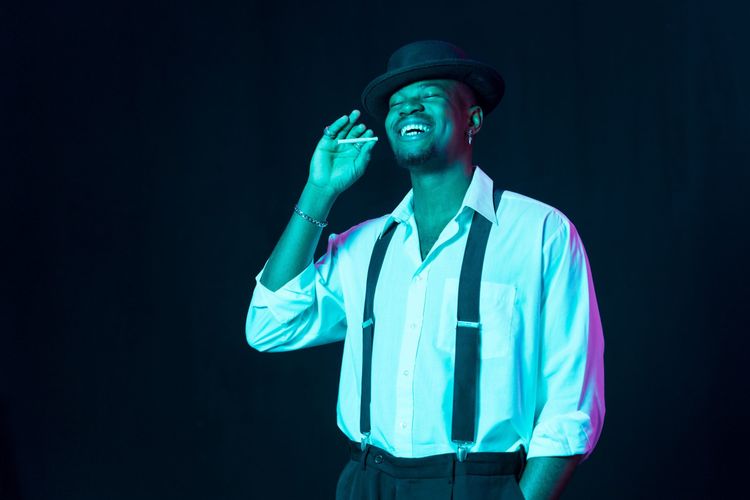3 Powerful Reasons You Should Stop Apologizing

What are you really doing when you're apologizing?
“Feeling regret or penitence” is one definition of the word sorry. But where is that regret coming from? Are you trying to right a wrong? Or are you just trying to save face?
To be clear, a genuine apology is a beautiful thing. Someone recognizing the harm they’ve caused and trying to make amends is a feat. It takes courage and humility to admit fault and ask for forgiveness.
But somehow, no one seems to apologize to the person who’s always sorry. Their demeanor says, “It’s ok for you to harm me. I probably deserve it. If you do harm me, I’ll find a way to make it my fault. Sorry for wasting your time.”
I used to be like this, and believe me, it’s a miserable way to walk through life. If you feel this way, here are three things you need to hear to free yourself from this mindset.
1. Apologizing is Manipulative
Excessive apologizing isn’t about taking responsibility or making amends. More often than not, it’s about covering your own ass. It’s about making sure people still like you at the end of the day.
Like most things, this has its origins in childhood. Abandonment experiences, or traumatic experiences between child and caregiver, drive people to manipulative behaviors in adulthood.
These needy behaviors come from a place of desperation and anxious attachment. This is most apparent in romantic relationships. According to Psychalive.org:
“They rely heavily on their partner to validate their self-worth. Because they grew up insecure based on the inconsistent availability of their caregivers, they are “rejection-sensitive.” They anticipate rejection or abandonment and look for signs that their partner is losing interest.”
Being disliked by anyone was scary to me. Relating to people became an incredibly delicate process of not stepping on a landmine. I couldn’t upset anyone. And if I did, I’d find myself apologizing immediately to put a band-aid on the error.
Psychologist Robert Glover would call this a “covert contract.” My contract was: I never upset you, and you keep on liking me. You don’t abandon me. Apologies were the ink this contract was written with.
As you might imagine, this is not a productive, or honest, way to have relationships.
2. People Will Force Their Reality on You
Always being willing to apologize makes you vulnerable to other people’s influence. They will bluntly tell you how you should be, act, and conduct yourself in the world. Being self-effacing gives them free rein to control you while you struggle to keep their affection.
In my experience, those who express themselves without apology aren’t the ones being told what to do. People give you a hard time because they don’t have the gall to say it to someone who won’t apologize.
Gentler souls will be moved by your quickness to apologize. But most people will see it as a reason to look down on you. According to CNBC:
…psychotherapist Beverly Engel says over-apologizing isn’t so different from over-complimenting: You may think you’re displaying yourself as a nice and caring person, but you’re actually sending the message that you lack confidence and are ineffectual.
It’s like giving someone permission to hurt you.
I’m not suggesting you become some bitter person who stomps their way through life without giving a shit about boundaries. I’m saying that if you’re apologizing for everything, you’re giving your power away. And odds are, you have nothing to be sorry about.
3. You’ll Waste Your Life Apologizing
I used to feel like everything I did was wrong. I majored in the wrong subject in college. I talked about the wrong things. My nerdy hobbies were strange and unacceptable. And I spent so much time feeling guilty, ashamed, and embarrassed. I felt like I owed everyone an apology.
But now, I’m going to be my own island. The things I do and the choices I make are mine to own. In a famous interview with Henry Rollins, the lead singer of the punk band Black Flag, he says to his interviewer, “I don’t want you on my side. I want you on your side.” Then he says:
“No armies. I’m the lord of my church. I wrote the book. I’m the man on the cross. I’m the boss. And I believe. Amen.”
Apologies were never on that man’s mind. Be like that.
How long are you going to keep feeling guilty? How long before you start defining what a good life is? You can apologize all the way to your grave, and in your final moments, you’ll realize the only person you let down is you. At least you never pissed anyone off.
“Sorry I Keep Saying Sorry”
After all that groveling and begging for forgiveness, you arrive back at yourself and realize that you’re the one you’ve wronged most. You spent so many years disrespecting your needs and thinking that made you a “good” person. Who do you really owe an apology to?
The opposite of apology is authentic expression. Saying what you mean is by nature unapologetic. This is who I am. This is what I think. This is the way it is. No contracts. No manipulation. No bullshit. Just me relating to you.
It’s grounded in self-trust and a fundamental worth that isn’t fueled by others’ admiration. If you want to stop apologizing, you need to become authentic.
Realness is your greatest strength.



